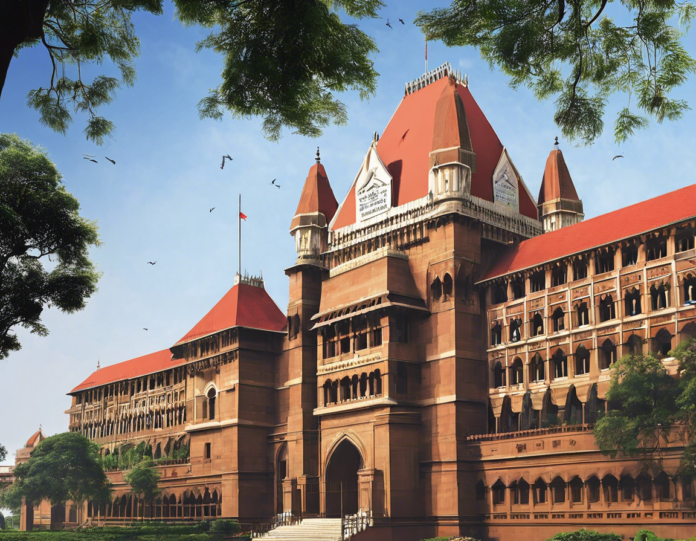Introduction
Navigating the legal system, particularly at the high court level, can be a daunting task for many. This article aims to provide readers with an inside look at the Madhya Pradesh High Court, shedding light on its structure, functions, and key processes. Understanding the intricacies of the legal system is crucial for anyone involved in legal proceedings or seeking insights into how justice is administered. Let’s delve into the various aspects that make up the MP High Court and gain a deeper understanding of its operations.
Jurisdiction of the MP High Court
The Madhya Pradesh High Court is the highest judicial body in the state of Madhya Pradesh and has jurisdiction over the entire state. It serves as both an appellate court and a court of original jurisdiction, hearing cases related to civil, criminal, and constitutional matters. The high court plays a crucial role in upholding the rule of law and ensuring justice for the citizens of Madhya Pradesh.
Structure of the High Court
The high court is headed by the Chief Justice, who is responsible for the overall administration of the court. The Chief Justice is supported by a roster of judges who preside over various benches and divisions within the court. These judges are appointed based on their experience and expertise in the field of law. The high court is organized into different divisions, such as the civil division, criminal division, and administrative division, to handle cases efficiently and effectively.
Functions of the MP High Court
The Madhya Pradesh High Court performs several functions to facilitate the administration of justice in the state. Some of the key functions of the high court include:
-
Adjudicating Cases: One of the primary functions of the high court is to adjudicate cases that come before it. This includes hearing appeals from lower courts, as well as original cases that fall within its jurisdiction.
-
Interpreting Laws: The high court plays a vital role in interpreting laws and ensuring their proper application in various legal disputes. Its decisions set precedents that guide lower courts and influence legal proceedings across the state.
-
Protecting Fundamental Rights: As the guardian of the constitution, the high court is entrusted with safeguarding the fundamental rights of citizens. It hears cases related to violations of fundamental rights and issues writs to protect individuals from unlawful actions.
-
Supervising Lower Courts: The high court supervises the functioning of lower courts in the state to ensure that justice is delivered efficiently and impartially. It has the power to review the decisions of lower courts and provide guidance on legal matters.
Key Processes at the MP High Court
The Madhya Pradesh High Court follows a set of processes to handle cases and administer justice. Understanding these processes can provide insights into how the legal system operates and how individuals can navigate the court system effectively. Some of the key processes at the high court include:
-
Filing of Petitions: Individuals or entities seeking legal remedies can file petitions in the high court, stating their grievances and seeking relief. The court examines these petitions and decides whether to admit them for further proceedings.
-
Case Management: Once a case is admitted, the high court manages the proceedings through various stages, including hearings, evidence presentation, and arguments from both parties. The court ensures that cases are heard in a timely manner and decided judiciously.
-
Appeals Process: The high court serves as an appellate body for cases decided by lower courts. Parties dissatisfied with the verdict of a lower court can file appeals in the high court, seeking a review of the decision based on legal grounds.
-
Legal Research and Analysis: Judges at the high court engage in legal research and analysis to interpret laws, precedents, and legal principles relevant to the cases before them. This process helps in arriving at well-reasoned judgments that uphold the principles of justice.
FAQs about the MP High Court
-
How can I file a case in the Madhya Pradesh High Court?
To file a case in the MP High Court, you need to prepare a petition outlining the facts of the case, the legal grounds for your claim, and the relief sought. The petition should be filed along with the required court fees and supporting documents. -
What types of cases does the Madhya Pradesh High Court hear?
The high court hears a wide range of cases, including civil, criminal, constitutional, and administrative matters. It acts as an appellate court for cases from subordinate courts and also handles original cases falling within its jurisdiction. -
Can I represent myself in court without a lawyer?
While it is possible to represent yourself in court (known as appearing “pro se”), it is highly recommended to seek legal representation, especially in complex legal matters. A qualified lawyer can provide valuable guidance and advocacy throughout the legal process. -
How long does it take for a case to be resolved in the high court?
The duration of a case can vary depending on factors such as the complexity of the legal issues involved, the availability of evidence, and the court’s schedule. Some cases may be resolved relatively quickly, while others may take months or even years to reach a final decision. -
What are the key principles that guide the decisions of the Madhya Pradesh High Court?
The decisions of the high court are based on principles of justice, equity, and the rule of law. Judges consider legal provisions, precedents, and the merits of each case to arrive at a fair and impartial judgment that upholds the principles of justice.
In conclusion, gaining a deeper understanding of the Madhya Pradesh High Court and its operations can empower individuals to navigate the legal system with confidence and knowledge. By familiarizing oneself with the structure, functions, and key processes of the high court, individuals can better appreciate the role of the judiciary in upholding the rule of law and ensuring justice for all.
